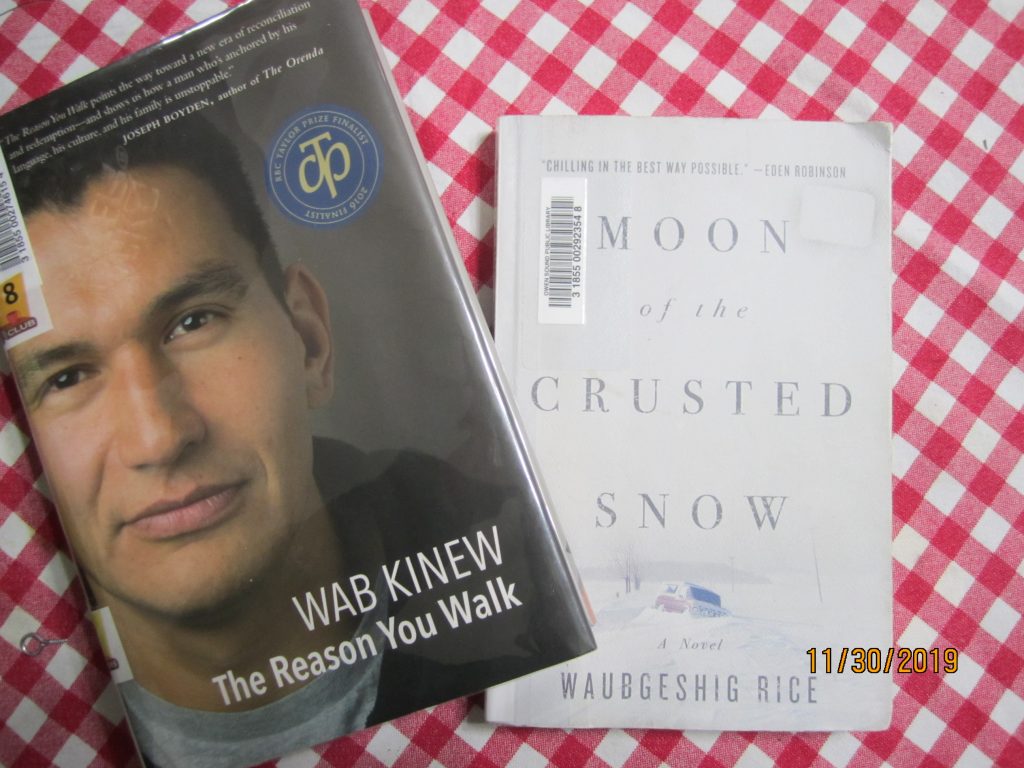
A few days ago I attended an interview with Indigenous writer and CBC host of Up North, Waubgeshig Rice. I had recently read his latest novel, Moon of the Crusted Snow, and was looking forward to hear the writer discuss his dystopian saga set in the Rez, after the sudden crash of electricity, internet, and all communications. By coincidence, my nonfiction Book Club’s selection for this month is Waub Kinew’s biographical work, The Reason You Walk.
Both books deal with what the writers term the native apocalypse. Kinew relates the effects the institution had on his own father and his ensuing inability to be a father to Waub and his siblings as a result. Rice, meanwhile, has created an allegorical apocalypse, which, the way the climate crisis is progressing, has the chilling tinge of real possibility all through its narrative.
Rice told us how he has always been a fan of sci-fi dystopias, particularly Cormac McCarthy’s The Road – and found they percolated within him for years, finally inspiring him to sit down and write his own, but informed from an Indigenous point of view. He spoke about thinking up dire conditions, and trying to create the most despicable character for the book’s nemesis, (colonization) at the same time coming up for a rational for the character turning up at the Rez in the first place. It was interesting hearing how Rice used dreams as both a supernatural and foreshadowing device in the book. As soon as he said those words, I immediately thought, I’m using that in something!
At the start of his book, Waub Kinew states very clearly his reasons for putting down on paper the damage his relationship with his father suffered, followed by the slow healing and eventual reconciliation between them. By sharing his story he hopes others will learn from the lessons he learned on his journey to healing, and being a loving father to his own children.
At the same time, with Waub Rice sitting and talking with us, story telling, as he calls it, I felt very fortunate to have the opportunity to hear another writer discuss fully the motives entailed in writing such a powerful and chilling novel. Biography and novel each, both books examine the generational damage of colonization: pain; loss; disconnect from one’s own sense of self.
For me, both authors, one writing of family history as he personally experienced it, and the other writing of the same truths disguised in fictional characters and an apocalyptic setting, are writers whose stories have enriched my understanding of people with experiences far from mine, yet with the same human struggles of sorrow, loss and healing.
And that’s bound to make me a better writer.